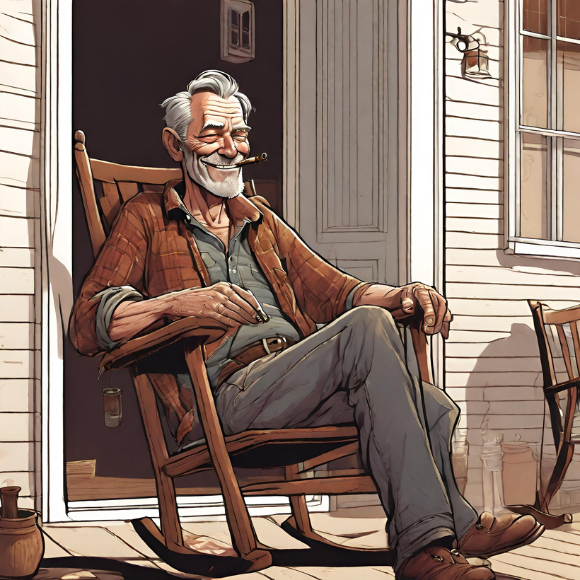Read by Patrick Hughes

In the heart of a quaint town, where stone walls held stories, and ancient fields whispered secrets, my 12-year-old self embarked on a journey both ordinary and extraordinary.
It all began with a bicycle, a gift from my hardworking grandfather, a man whose laborious days at the Boston Navy Yard had etched a profound respect for diligence in my young mind. Little did I know that this seemingly simple present would set the stage for a lesson in life, love, and the unspoken language of nature.
The tale unfolded in our backyard, where a humble field became a canvas for my parents’ dreams. Unbeknownst to me, the yields from this verdant plot were the threads that held our family’s financial fabric together.
My excitement, however, lay elsewhere—eight miles away in Randolph, Massachusetts, where my grandfather resided. His wicker chair and pipe awaited my stories of the road, but little did I anticipate that the day would take an unexpected turn toward a life-changing lesson.
“Dan, how was your trip?” he asked, a comforting puff of pipe smoke swirling around him.
“Great!” I beamed.
As we exchanged tales, the conversation drifted to our backyard and the nascent desire for a garden. His resolute words echoed, “I had a Victory Garden in World War I, and you are going to have a garden, too.”
Thus, a dream was born, nurtured by shared visions of vibrant peppers, squash, and tomatoes dancing in the sunlit breeze.
Fueling my newfound enthusiasm, a trip to the library unveiled a word unfamiliar to my young ears—organic. The librarian, a guardian of wisdom, emphasized, “That’s when you let nature take its course. You can’t do better than Mother Nature.”
With newfound knowledge, I returned home to share my revelation with my mother, who, standing amidst the steam of boiling potatoes, whispered the wisdom of ages: “Nature’s way ensures each plant gets just the right amount of water. After many years of trial and error, nature knows just what to do.”
Emboldened by this cosmic wisdom, I set out to turn a section of my grandfather’s well-manicured lawn into a thriving garden. What began as a dream soon unfolded into a reality painted with sweat and determination.
School ended, Summer began, and my daily pilgrimage to the garden commenced. The initial allure of planting was replaced by the gritty reality of hard work. Yet, with each drop of sweat, a sense of accomplishment grew, and the garden transformed from a whimsical idea into a tangible reality.
“You did a good job. The garden looks great,” Grandpa praised.
As the moment of truth arrived, he offered to water the garden, but my newfound philosophy dictated otherwise: “I’m going to let nature take its course. You can’t do better than Mother Nature.”
Days turned into weeks, and as the garden languished in anticipation of rain, a harsh reality emerged. My convictions were shattered as I faced the consequences of neglect. The garden, once teeming with promise, now lay withered and defeated.
As I approached my grandfather, a heavy heart mirrored in my eyes, I confessed my oversight. “I thought nature would take care of my garden, but I was wrong.”
In that vulnerable moment, I learned a lesson far more profound than any book could offer. “When you love something, you need to show it,” he gently advised. Love, it seemed, required action.
Placing his hand on my shoulder, he spoke words that transcended disappointment, “You figured that out all on your own. I’m proud of you, Dan.”
As we walked away, the warmth of his love lingered in the air. The garden might have withered, but the seeds of understanding and love had taken root in the fertile soil of my heart.
“Let’s get something to eat and watch the Red Sox game,” he suggested.
“Sounds good,” I agreed.
And so, in the fading sunlight, we left behind a garden that had taught me not only the art of cultivation but also the essence of love—a lesson nature had been whispering all along.
“I love you, Grandpa.”
“I love you, Grandson.” ❖
About the Author: Daniel Stewart, originally from Boston, found a new home further south in retirement, where he discovered the challenges and joys of gardening in a different climate. His experiences reflect the universal lessons learned through adapting to new environments.


 Previous
Previous

